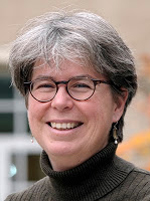In those days a decree went out from Caesar Augustus that the whole world should be enrolled. This was the first enrollment, when Quirinius was governor of Syria. So all went to be enrolled, each to his own town. And Joseph too went up from Galilee from the town of Nazareth to Judea, to the city of David that is called Bethlehem, because he was of the house and family of David, to be enrolled with Mary, his betrothed, who was with child. Luke 2:1-5
“What time do you need to leave?” I asked my oldest son, Mike. He came home last night, and leaves this afternoon for Tennessee to spend Christmas with his girlfriend and her family. At 2:35, they tucked their bags in the back of my car and I drove them to Philadelphia’s airport, wishing them safe travels, watching as they walked off.
As I drove home, I thought of Anna, the mother of Mary. What had she thought as she watched her very pregnant daughter walk out of Nazareth, headed for Bethlehem — 80 miles and a mountain pass away? What advice did she give Mary, what might she have tucked in her bags, “just in case?”
There would be no phone call for her, letting her know they were safe in Bethlehem. No email with a photograph of her newborn grandson. She must simply trust that all in the end would be well, letting go of her daughter and the hope she bears within her. Parting with what she treasures, to let God’s will be done.
[hotblock]
My reflections pushed me to pull theologian Father Johannes Baptist Metz’s small book, “Poverty of Spirit,” off the shelf to read in these last days of Advent. This poverty, suggests Father Metz, is where “the meeting point of heaven and earth … the point where infinite mystery meets concrete existence.” It is how we encounter God, with empty hands.
Jesus’ life was characterized by the poverty of the commonplace from the moment of his birth — laid in an makeshift, last-minute bed in a stable — to the moment he was laid in a borrowed tomb. Living out in his daily life a radical dependence on God, a grace of openness to which we all have access in our own lives.
I suspect that Mary learned this fundamental way of being from her mother, Anna, who waved her off on her journey, committing herself again to the uncertainties, depending on the grace of God to watch over her daughter.
I look to Anna in these last days of waiting to learn again how to let go of what has been entrusted to me when the time comes. In ways that are concrete, in the moments that are commonplace, in the places that are hidden, where I might not otherwise look.
Advent is helping my heart to empty out, not simply in preparation for this great feast celebrating a long-awaited birth, but emptied to allow me to become a midwife to the Christ. That I might let him enter my soul, and willingly offer him to the world through my hands. Emptied that I might become a simple cradle for the holy one of Israel.
To read: Daniel Ladinsky’s poem “If You Want,” after St. John of the Cross
If
you want,
the Virgin will come walking down the road
pregnant with the holy,
and say…
“I need shelter for the night, please take me inside your heart,
My time is so close.”
Then, under the roof of your soul, you will witness the sublime
intimacy, the divine, the Christ
taking birth
forever,
as she grasps your hand for help, for each of us
is the midwife of God, each of us.
***
Michelle Francl-Donnay is a member of Our Lady of Good Counsel Parish, Bryn Mawr.
PREVIOUS: Can a Catholic oppose the Church’s position on climate change?
NEXT: Hyphenated names are A-OK, but not unbridled corporate greed



Share this story